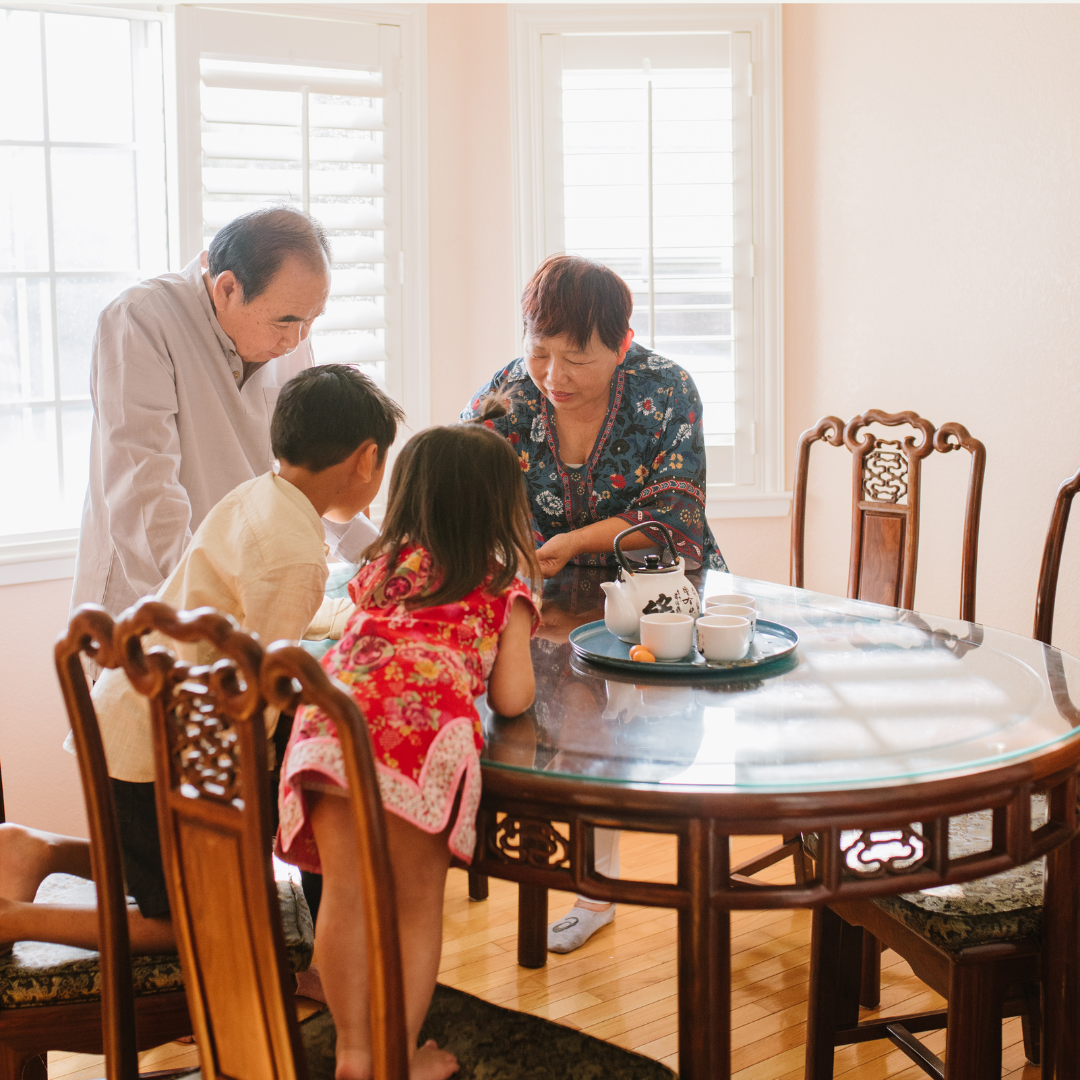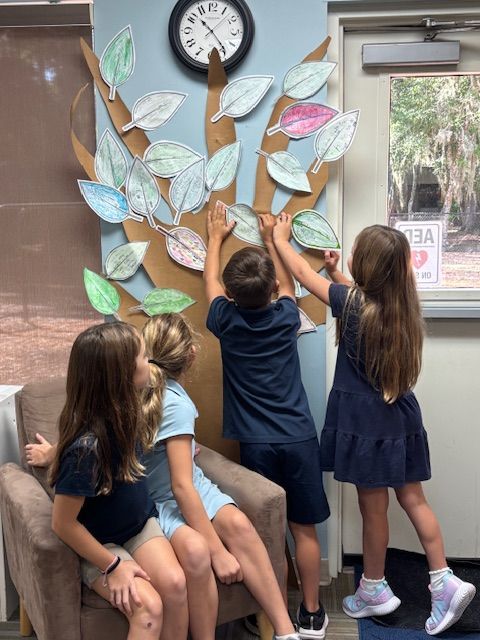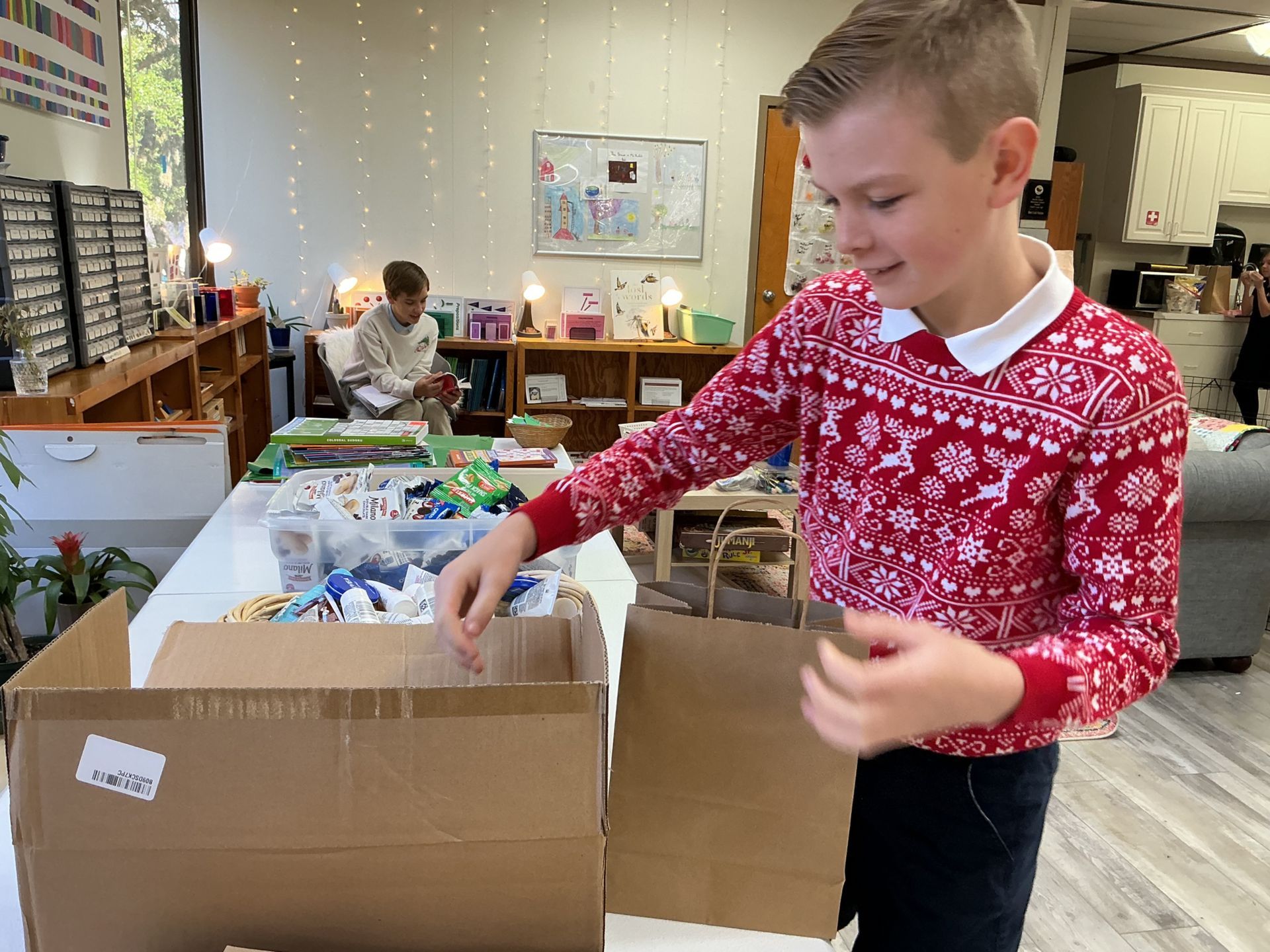
At the heart of Montessori education lies a profound respect for individual growth and the interconnectedness of communities. One of the hallmark features of Montessori philosophy is its embrace of multi-age learning environments, fostering collaboration, mentorship, and a deeper understanding of social responsibility. At our school, we take this principle a step further by partnering with a local retirement community, creating opportunities for our students to learn, connect, and grow alongside older generations.
The Power of Multi-Age Learning in Montessori Classrooms
In Montessori classrooms, students are grouped into multi-age communities, typically spanning three years. This unique setup allows younger children to observe and learn from their older peers, while older students reinforce their knowledge through teaching and mentoring. This dynamic creates a culture of mutual respect, patience, and empathy, as students build meaningful relationships and develop life skills that extend beyond academics.
Multi-age learning also mirrors the diversity of real-world environments. By engaging with peers of different ages and abilities, students cultivate adaptability, leadership, and collaboration - qualities essential for thriving in any community or workplace.
Extending Learning Across Generations
Our school’s partnership with the local retirement community exemplifies the real-world application of Montessori principles. Through activities such as shared reading, storytelling, singing, and art projects, students and seniors connect in ways that enrich both groups. Students bring youthful energy, curiosity, and fresh perspectives, while the seniors share their wisdom, life experiences, and a sense of history that fosters reflection and gratitude in our students.
These interactions emphasize the importance of respect for every stage of life. They also break down barriers between generations, cultivating a sense of belonging and shared humanity. For students, this is an opportunity to practice communication, compassion, and social responsibility - attributes that align seamlessly with the Montessori ethos.
Why Multi-Generational Connections Matter
In a fast-paced world that often isolates generations, creating opportunities for meaningful connections can profoundly impact both young and old. Seniors benefit from the companionship, mental stimulation, and sense of purpose that comes from engaging with children. Students, in turn, gain insights into the value of experience, perseverance, and interdependence.
These partnerships also echo Maria Montessori's vision of fostering peace and harmony. By building bridges across age groups, we inspire a culture of empathy and understanding - a crucial step toward creating a more compassionate society.
A Celebration of Community
The collaboration between our school and the retirement community is a testament to the enduring relevance of Montessori principles. It shows that education is not confined to the classroom; it is a lifelong journey shaped by the people we encounter and the relationships we build. Together, our students and senior partners demonstrate the power of community, reminding us that learning and growth are beautifully boundless when generations come together.
By Ms. Katie, Outreach Coordinator


